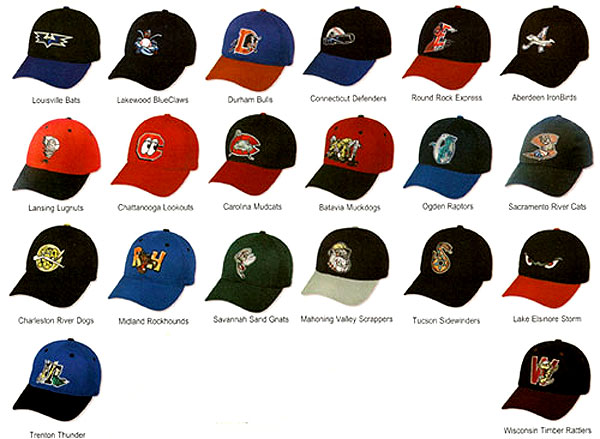Earlier this year, The Wall Street Journal announced that they would expand their sports section from its once-a-week appearance to an everyday section, and I’ve been following the online version since. Last week I came across a very interesting article by Allen Barra, and I wanted to explore the possibilities of an idea he proposed. Barra argued that with the exception of MLB, America’s major sports leagues don’t pay for the development of their athletes. Rather, this financial burden is placed on their collegiate institutions. Based on Murray Sperber’s evaluation of college sports, Barra noted that most college athletic departments lose money and drain funds from alumni and taxpayers. Apparently, this is an injustice. Barra’s solution to this problem: The NFL, MLB, and NBA should provide a full scholarship to each school for every player drafted from that institution.
The fact that major league baseball is supported by their extensive minor league system should be enough reason to take them out of the equation, but they do still draft many college players. Almost all of these players will still enter the minor league system to be trained for the big leagues, unlike their NFL and NBA counterparts. So let’s include them anyway. Perhaps each major league team could give a 50% scholarship rather than full tuition for every player placed on a minor league roster.
The real bulk of this question is dealing with the NFL and NBA. Why on earth would they ever agree to this? More importantly, how would the NCAA ever hold a strong enough position on the situation that they could strong arm the leagues into completing such a deal? The simple answers to these questions are that they probably wouldn’t, and that the NCAA never will have this ability, unless they have incriminating pictures of Roger Goodell and David Stern. However, consider this possible benefit for both leagues: They can stop trying to convince themselves that they are even capable of creating systems that are a one-hundredth as effective as baseball’s minor leagues.
First take a look at the NBA Developmental League. According to the league’s website, over 15% of current NBA players are D-League alumni. That’s actually a lot higher of a percentage than I would’ve imagined, but compare this to the amount of professional baseball players cycled through the minor league system. Furthermore, it’s been 8 years since play began and the league still only has about half the amount of teams of the NBA. I would hardly call that a successful minor league system. The developmental league has sent several noteworthy players up to the big leagues, like Rafer Alston and Jamario Moon, but these aren’t enough reasons to keep the league around. The only reason I agree with for keeping the D-League is that it gives many players who will never make it to the NBA the opportunity to play ball at the next level. If I had to guess, the D-League isn’t much of a revenue stream for the NBA. If it’s anything like its defunct NFL counterpart, NFL Europa, it’s actually losing money. The vision of a development league for the NFL closed its doors in 2007, 16 years after it started play. The league reportedly lost about $30 million a year. Off the top of my head, Kurt Warner and Jake Delhomme are the only players I can think of that started their professional careers in NFL Europa. It just seems that there is no place for second-tier football leagues anymore. The Arena Football League just suspended play, and who knows if they will make a comeback. The United National Gridiron League which envisioned itself as a sort of minor league system for the NFL had a planned 2009 start date, but has already postponed this until 2010.
This brings us back to the question of why the NFL and NBA would give back to the colleges, even if it gave them good reasons to shut down their sub-par minor leagues. For starters, it would look good. Potentially it could create more competition among programs as they look to attain scholarships, resulting in higher quality athletes. On the surface, Barra’s idea is pretty sound, and would make for great PR. But it’s extremely hard to believe that something like this would ever work, so I’ve thought of a different solution to off-set this “free” training. As an aspiring agent, I obviously want my clients to be successful monetarily, but I also want them to exhibit respectable character traits and morals. If a majority of agents advocated that their clients personally donated a scholarship to their alma mater once such an act became financially feasible, I believe that all parties involved would be thoroughly satisfied. Moreover, it would reflect greatly on the character of the athlete. This is just a thought. I’m sure many athletes already give back to the universities that gave so much to them, but a structured program, perhaps through the league or players association, would do leaps and bounds for the morality of sports in America.
